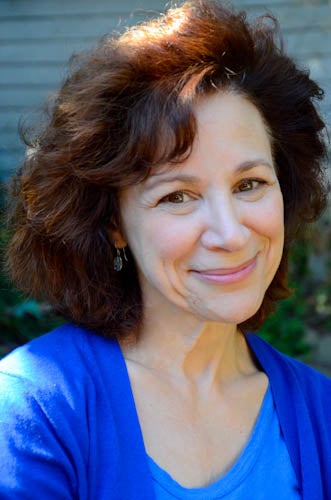Editor's note: This story is part of a series of profiles of notable fall 2022 graduates.
Estelle Golden’s professional life is full.
She’s been an actress in films and plays for more than 35 years. She directs and teaches drama classes at Shoreline Community College in Shoreline, Washington, just outside of Seattle.
Yet, in her 60s – Golden doesn’t want to give her specific age for fear casting directors will dismiss her as being too old – she decided to pursue a master’s degree at Arizona State University.
OK, that’s not exactly true. It was decided for her.
“So, the school where I work, we got to a point about five or six years ago where they said they want their teachers to have their master’s degree,” Golden said. “So I told my husband, ‘This is going to be expensive.’”
But when Golden started taking classes at ASU the cost became, if not irrelevant, secondary in her mind.
“What started off as, ‘OK, I just have to do this, I have to get through it,’ turned into, ‘Oh my God, this is amazing,’” said Golden, who will graduate in December with a Master of Advanced Study in film and media studies. “ASU has the biggest bang for the buck.”
Golden spoke with ASU News about her late-in-life education and how it’s never too late to learn.
Question: Why did you choose ASU?
Answer: I know all about acting. I know about creating characters and I know how to direct. But connecting the dots with film studies was something that I hadn’t really delved into. And to be honest, when I was younger and all I was pushed to do was become an actor, school didn’t matter to me very much. And I had a lot of acting opportunities. But now, at this age, I was able to sit back and say, “I want to really understand about feminist film theorists. I want to really understand how film informs how we treat people in our society.” I looked at a number of programs online, I looked at ASU’s faculty, did some research, looked at the classes that were being offered in the program, and it just felt right.”
Q: What’s something you learned while at ASU – in the classroom or otherwise – that surprised you or changed your perspective?
A: The professors that I’ve had, I feel like I’m an advertisement for the school when I talk about it. I have had incredible people teaching me, and I have become a very deep reader because of it. Instead of skim reading, I’ve really honed skills of mine in terms of writing academic papers that I have never done before. Whenever you are pushing the boundaries of your capabilities it can only help you be better.
Q: Which professor taught you the most important lesson while at ASU?
A: Christopher Bradley has, in terms of screenwriting and understanding story, has been phenomenal. I had Katie Brown for the film studies class and she’s a fabulous professor. I’ll be honest. Out of all the faculty I’ve had, I didn’t have one I didn’t like.
Q: What’s the best piece of advice you’d give to students still in school?
A: Stay with it and devote the time you need to get what you can out of this. I think that’s the benefit of being an older student. I truly understand that now. It will benefit you later in life if you devote yourself to really focusing on the task at hand. What you’re learning now, if you really take it in, will help you later.
Q: As an online student, what was your favorite spot for power studying?
A: I have a place upstairs in my house where I have a nice window facing the backyard and I close myself in there. It just created this very secluded but warm environment so there’s nothing distracting.
Q: What are your plans after graduation?
A: Continue teaching, acting directing. And writing has become something I am very excited about. I’m working on a full-length screenplay. The idea for this film came to me standing in a very crowded grocery store. The idea of women at a certain age maybe feeling a little bit out of control of their lives and following a certain pathway because they think they’re supposed to, and then coming out of that and maybe taking control back of their lives. It’s kind of a psychological thriller. But it has to do with women who are older — call them of a certain age — that tend to get ignored and pushed to the back.
Q: If someone gave you $40 million after graduation to solve one problem on our planet, what would you tackle?
A: It would either have to be housing or hunger. They’re equally important. Life can’t continue if you don’t feed them. And you can’t go on in life and succeed and be happy without a home to live in.
Top photo by Pixabay.
More Arts, humanities and education

‘It all started at ASU’: Football player, theater alum makes the big screen
For filmmaker Ben Fritz, everything is about connection, relationships and overcoming expectations. “It’s about seeing people beyond how they see themselves,” he said. “When you create a space…

Lost languages mean lost cultures
By Alyssa Arns and Kristen LaRue-SandlerWhat if your language disappeared?Over the span of human existence, civilizations have come and gone. For many, the absence of written records means we know…

ASU graduate education programs are again ranked among best
Arizona State University’s Mary Lou Fulton College for Teaching and Learning Innovation continues to be one of the best graduate colleges of education in the United States, according to the…



